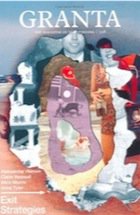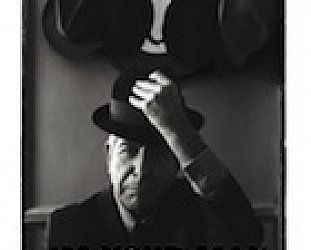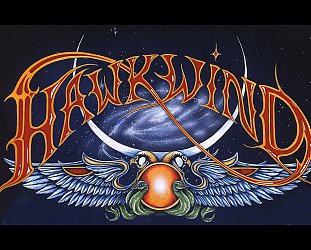Graham Reid | | 2 min read

Although the title phrase here has been appropriated by the corporate world – often as a nod'n'wink euphemism for an obscene and absurdly high contract pay-out – the British literary magazine Granta takes a broader view in this typically interesting, if uneven, collection of 18 new works by established and new writers alike.
The most senior is the least of them as 80-year old John Barth reflects on 53 year of writing, his long-established work habits and the possibility of not writing again. Or, as he does here, note he is writing this about not writing.
The centre-piece photo essay by Stacy Kranitz of Isle de Jean Charles and the 5km road to it sinking into the Gulf of Mexico is equally thin, and Paula Bohince's poem about escaping from life (a relationship?) at 30 has perhaps less resonance than she might think.
But there are also engrossing subjects and writing here, as always.
Aleksandar Hemon takes us into his family and friends' lives in Sarajevo and the nearby mountain refuges as the bullets start to fly. But his vehicle is the dogs that people owned. These pets' loyalty, innocence and protective nature exist in their own right, but also as an aching metaphor of compassion and unconditional love in a brutal world.
Judy Chicurel's story is of a troubled young boy in New York she briefly tried to care for. He later kills a man who wanted to pay him for sex, then hanged himself in prison. It is no less affecting for its sightly melodramatic tone and her character's deliberately flat self-doubt.
Susan Minot bases her fictional piece on the kidnapping of 30 girls from a Catholic boarding school in northern Uganda by a rebel faction (the Lord's Resistance Army) and the negotiation by Sister Giulia to get most of them back. That “most” hangs as heavily as Sophie's choice and the terrifying story with its barely restrained violence could be set anywhere in similarly troubled regions.
And Jacob Newbury writes an outstandingly quiet piece about young gay guys in Mississippi dancing on the edge of life's promise, and of their older friend Jay. But while the gentle Jay reaches for similar hope, he eventually retreats into marriage out of the need to find love. As much as it is about Jay being slowly torn apart, it is also how the caring friends feel helpless in the face of his decision. A beautiful piece.
Elsewhere, a Russian migrant is deported from the US in the Twenties on the flimsiest of reasons (new writer Vanessa Manko's The Interrogation), America becomes a distant but confusing symbol of hope and escape for a young lesbian in Nigeria wanting to reunite with her absent partner (again a new writer, Chinelo Okparanta in an impressive, reflective and understated piece), and there is an incendiary and brief sexual encounter which is never forgotten but later reduces the man to tears when an image of smoke and fire brings it back (David Long's Bonfire).
There is also a lesser Alice Munro story about an old lady having lost her grip on life.
As with all such diverse collections, some work will appeal more than others.
Many will be about what the reader brings as much as the author, but in the best here there are characters – and dogs – who will come to occupy a place in your life.





post a comment